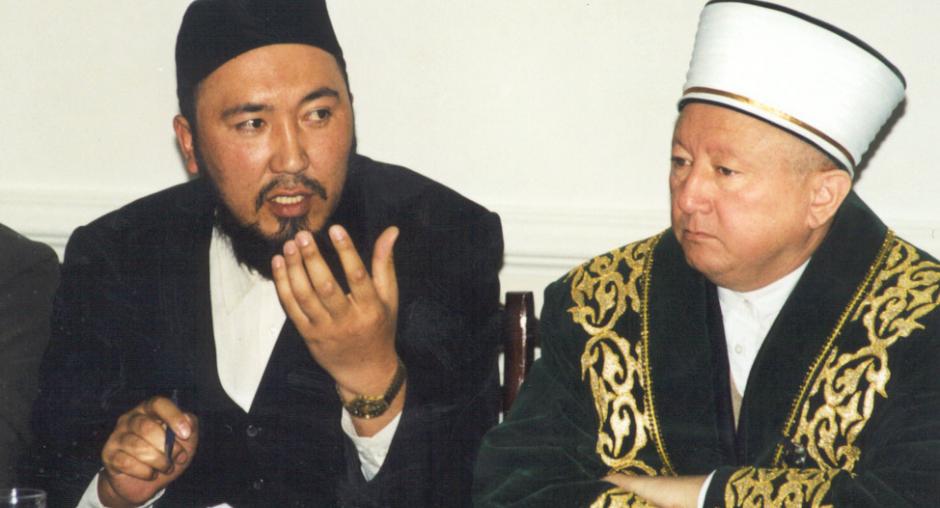Newsroom
Conference calls on OSCE states to respect the rights of religious groups
OSH 4 December 2003

The OSCE has held a number of conferences and seminars in Central Asia and the Caucasus on the issue of freedom of religion or belief. (Kathleen Samuel/OSCE) Photo details
OSH, 4 December 2003 - Repression of religious groups is not an acceptable response to religious fundamentalism and extremist political movements, participants declared at an OSCE Conference on Freedom of Religion or Belief, held in Osh, Kyrgyzstan, on 3 and 4 December.
Conference participants added that, too often, repression served only to drive peaceful believers towards violent extremism.
"The official attitude towards religion and religious organizations in the past was to regard them as inhibiting social development," said Omurzak Mamayusupov, Head of the State Committee for Religious Affairs in Kyrgyzstan. "This has been replaced by acceptance of them as a real component of modern society and by an objective evaluation of their historical contribution to the formation and development of a state and its culture."
Some 60 participants took part in the two-day conference, which was organized by the OSCE Centre in Bishkek, the OSCE's Warsaw-based Office for Democratic Institutions and Human Rights (ODIHR), and the State Committee for Religious Affairs in Kyrgyzstan. Participants developed a plan of action to further the implementation of OSCE commitments regarding religion and belief, focussed on increasing dialogue between states and religious groups as well as between different religions in Central Asia.
The conference also considered appropriate responses to extremist groups, including those aimed at the overthrow of the state, which was described by Professor W. Cole Durham, a member of the ODIHR's Advisory Panel on Freedom of Religion or Belief, as being in the "borderlands of democracy". Stephen Young, the United States Ambassador to Kyrgyzstan, reminded the seminar that groups with extremist though non-violent views operate openly and legally throughout the Western World.
Participants highlighted the importance of respecting the autonomy of religious groups to enable them to challenge a radical interpretation of their own beliefs. The importance of the right of religious leaders to provide religious education was seen as imperative, since knowledge of one's own religion is a basis for tolerating the beliefs of others.
Conference participants added that, too often, repression served only to drive peaceful believers towards violent extremism.
"The official attitude towards religion and religious organizations in the past was to regard them as inhibiting social development," said Omurzak Mamayusupov, Head of the State Committee for Religious Affairs in Kyrgyzstan. "This has been replaced by acceptance of them as a real component of modern society and by an objective evaluation of their historical contribution to the formation and development of a state and its culture."
Some 60 participants took part in the two-day conference, which was organized by the OSCE Centre in Bishkek, the OSCE's Warsaw-based Office for Democratic Institutions and Human Rights (ODIHR), and the State Committee for Religious Affairs in Kyrgyzstan. Participants developed a plan of action to further the implementation of OSCE commitments regarding religion and belief, focussed on increasing dialogue between states and religious groups as well as between different religions in Central Asia.
The conference also considered appropriate responses to extremist groups, including those aimed at the overthrow of the state, which was described by Professor W. Cole Durham, a member of the ODIHR's Advisory Panel on Freedom of Religion or Belief, as being in the "borderlands of democracy". Stephen Young, the United States Ambassador to Kyrgyzstan, reminded the seminar that groups with extremist though non-violent views operate openly and legally throughout the Western World.
Participants highlighted the importance of respecting the autonomy of religious groups to enable them to challenge a radical interpretation of their own beliefs. The importance of the right of religious leaders to provide religious education was seen as imperative, since knowledge of one's own religion is a basis for tolerating the beliefs of others.
